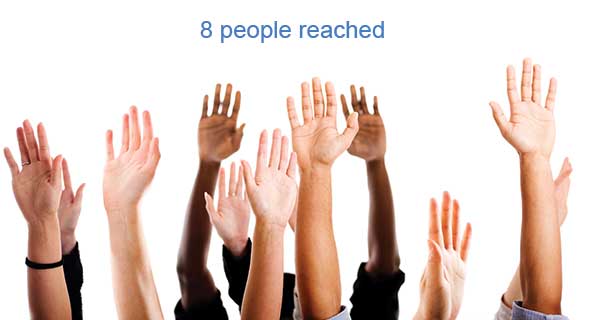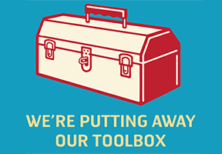Should your business be on Facebook?

The eighth item in our series about being effective online explores the value of Facebook for business. Is it an effective tool for promoting your work, staying connected with clients and customers, and raising your organization’s online profile? Or has Facebook stifled page reach to the point that nobody is seeing them?
Facebook may seem like old news, but with over a billion users it is still by far the most popular social media platform in the world. In the online world, you won’t find a higher concentration of people to connect with.
It’s also free and easy to manage. It gives your business or organization an online presence, keeps you connected, and can drive traffic to your website or other social streams.
But if you’ve had a Facebook business page for a while, you have probably noticed it’s not reaching as many of your fans as it used to. Facebook will show you at the bottom of each post how many people it reached (“reach” means your post appeared in their news feed, though they did not necessarily see it, depending on how often they visit), and that number can be depressingly low.
Industry analysts are now estimating the “organic reach” of Facebook business pages to be around 2%. If you have an avid following who like and share your posts, this can climb higher. But for the average business page, your reach is dropping all the time.
So is there any point to trying to grow your Facebook page?
Many businesses, large and small, do use Facebook effectively. But you have to be highly active, and have a sophisticated strategy for posting. And you generally have to invest in advertising to reach a significant number of users. Once you’ve gained the reach, you need to post content that lures people away from Facebook and over to your website, plus highly shareable content so that your page fans will organically like and share your posts with their networks.
With or without advertising, there is still value in having a Facebook business page.
The benefits
- It will make your business more visible online. By maintaining a presence on the most used social media platform, you’re giving your target audience or would-be customers one more way to find you. And when you set up your Facebook page, you can request a specific address like “facebook.com/yourcompanyname” to make it even easy for users to find you.
- Keeps you connected with your audience, customers or members. Other Facebook users can like your page, read and share your posts, and leave comments on your “Timeline” (to which you can respond to and demonstrate how engaged you are).
- Gain new customers or members. If you have a loyal following, your existing friends/followers will share what you post with their friends/followers, thus exposing your organization to a new and wider audience. Similarly, you can be proactive in your efforts to raise your company’s profile by interacting with other users (as your brand) or joining in a public conversation — say in the comment section under a news article.
- Drive traffic to your website, blog, social streams, business or event. Like other social media platforms, you can use Facebook to distribute your latest blog post, encourage people to sign up for your e-newsletter, promote an event, and inform about a new product.
The risks
- Being so accessible online is a double-edge sword. Yes, having a Facebook presence gives you a chance to grow your audience and spread your message. But, like Twitter, it also opens you up to nasty reviews and criticism. That said, if you’re worried about users leaving negative comments on your Timeline, Facebook gives you the option to automatically set all messages to private. The downside to that is it might make your company look as though it has something to hide, or that perhaps you don’t have much of a following at all, which brings us to the next potential downside…
- A quiet or inactive account may deter others from wanting to do business with you. If you walk into a restaurant in the middle of the lunch hour rush only to find that it’s completely empty, what impression do you get? Most likely that the food and/or service isn’t up to snuff and you’re probably better off going to the sandwich shop across the street. Similarly, if you start a Facebook page only to neglect it a couple of weeks later, you may give people the impression that no one is home.
- Time lost. Like all online marketing efforts, Facebook will demand some of your company’s precious time. As we noted in our blog about the risks and benefits of Twitter, many businesses and organizations these days have a person, or an entire team, dedicated to social media communication. If your team is small and consistently swamped with more pressing work, Facebook might not be worth it.
Still want to use Facebook for your business?
As with any effort to extend your reach online, you’ll have to consider a few key things before you get started.
- Know your purpose on Facebook. Is the point of your page to raise your company’s profile, gain new clients or customers, share content, or demonstrate your expertise? Knowing what you’re doing on Facebook will help you decide what to share and how to present it.
- Identify your audience. Once you know what you’re doing on Facebook, the next step is to engage with the people who will help you grow your business or organization. Maybe you have an e-newsletter that you can use to encourage your existing clients to connect with you on Facebook.
- Determine your strategy. How often will you post, and when you do, what will you share — blog posts, new products, event information, industry news? If you plan on allowing public comments you’ll also want to have a plan as to how you will address anything negative.
Again though, if you really want to extend your reach on Facebook, consider paying for targeted ads and/or sponsored posts. We’ll address how to best go about that in our next item about being effective online.
Some posts about organic reach:
Improve your Facebook organic reach
Why your organic Facebook reach is falling, and what to do about it
